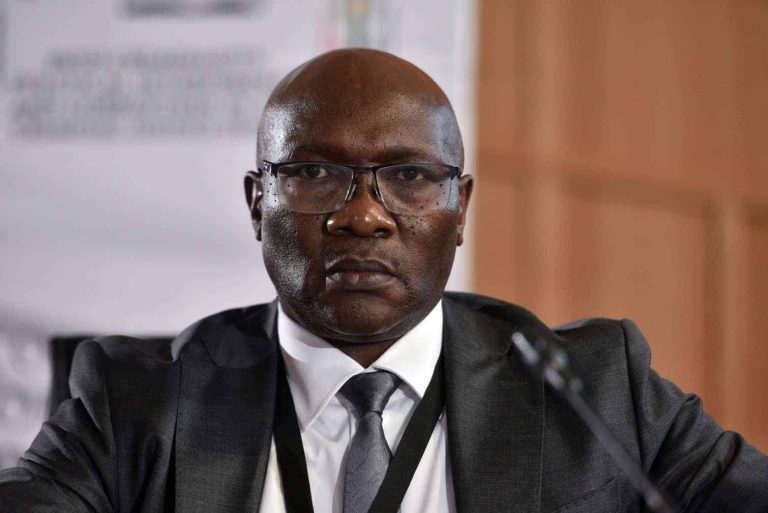
The Minister of Education, Dr. Tunji Alausa, Wednesday, announced the constitution of an Expanded Negotiation Committee to fast-track agreements with all unions in Nigeria’s tertiary institutions, as part of efforts to avert a looming strike by the Academic Staff Union of Universities (ASUU) and keep students in school.
This comes as ASUU called for a legislation of five to 10 years of existence of institutions to qualify them to access funds from the Tertiary Education Trust Fund (TETFUND).
Alausa, highlighted the federal government’s N200 billion intervention effort, which includes N50 billion already released for earned academic allowances and N150 billion provided in the 2025 budget for university revitalisation projects, as clear evidence of President Bola Tinubu’s commitment to addressing the long-standing issues in the sector.
The Minister, disclosed this while addressing journalists, after a meeting of the Technical Working Group in Abuja, where he reaffirmed Tinubu’s directive that Nigerian students must remain in school while all outstanding issues with university unions are resolved through dialogue.
“The directive President Bola Tinubu gave us is that our children must be in school. We should do everything humanly possible to avert a strike.
“At this point, we’ve addressed several of the issues raised by the unions. The earned academic allowance has been paid; the President released N50 billion months ago,” the Minister said.
Speaking further Alausa said: “Even the needs assessment that tertiary institutions have been fighting for almost 15 years, the President put N150 billion in this 2025 budget. He promised that it will be released in three tranches of N50 billion each, and the first tranche is already waiting.”
He added that the government’s actions demonstrate sincerity and readiness to meet its obligations, describing the intervention as part of a comprehensive effort to restore stability and mutual trust in the higher education system.
Alausa also revealed that the federal government has collapsed all separate negotiation platforms into a single expanded negotiation committee the Mahmud Yayale Ahmed Federal Government Tertiary Institution Expanded Negotiation Committee to engage all tertiary institutions and their unions under one coordinated structure.
“In the past, we had three different committees negotiating in silos, one for universities, one for polytechnics, and one for colleges of education. That was not efficient,” he explained.
“Now, we have one negotiation committee that will talk with all tertiary institutions and all unions, to have a full understanding of their needs,” Alausa said.
According to him, the Technical Working Group has been meeting to finalise the government’s counter-offer to ASUU, which would be transmitted to the expanded committee “by the end of today or tomorrow.”
The minister appealed to ASUU and other tertiary education unions to remain patient and maintain dialogue as the government addresses their long-standing concerns.
“Don’t use strike as your first resort. We know you’ve been patient, but these are issues that built up over decades. This President believes fervently and benevolently in education and has given us all the political will to resolve this problem once and for all,” Alausa said.
He emphasised that the government’s focus was on a holistic and affordable solution that recognises the sacrifices of lecturers and non-academic staff while ensuring fiscal responsibility.
“We’re not going to give everything at once, but our actions show benevolence and commitment to the welfare of academic and non-academic staff,” he noted.
He listed several areas of progress, including the resolution of promotion arrears, implementation of the 25–25 wage award, and payment of teaching and responsibility allowances.
“By next year, 2026, all arrears will be paid,” Alausa assured, adding, “We have shown over the last 24 months since this administration took over that we are determined to resolve this crisis holistically.”
Present at the Abuja meeting were representatives from the National Salaries, Incomes and Wages Commission, the Budget Office, and the Federal Ministry of Labour and Employment, along with senior directors of the Ministry of Education.
“This technical working group is at the highest level of government. We are working continuously and expeditiously to finalise our responses, reach an agreement, and sign it with the unions,” Alausa said.
Reiterating the administration’s resolve, Alausa said the N200 billion intervention demonstrates clear political will to reform and sustain tertiary education in Nigeria.
“Please, bear with us and be patient. We have a President giving us all the political will we need. We will resolve it once and for all. Let’s keep our children in school. This is a promise the President made to Nigerians, and it is a promise we intend to keep,” he said.
With a series of interventions and a unified negotiation framework, the federal government said it was confident of bringing lasting peace to Nigeria’s universities, without another ASUU strike.
Meanwhile, ASUU has called for a legislation of five to 10 years of existence of institutions to
qualify to access of funds from TETFUND.
The lecturers’ union said the primary aim of establishing the fund has been abused over the years and with new institutions which it refers to as community and constituency projects benefitting from it without proper planning and take off budgets.
It also faulted the support of the Nigerian Education Loan Fund, NELFUND by TETFUND, saying deliberate efforts must be put in place to ensure that the intervention agency was not over stretched in its activities, and primarily in the motive for the establishment of the Fund.
National President of ASUU, Prof. Chris Piwuna, who stated this on Wednesday, in Abuja at the 2025 TETFUND Board of Trustees town hall meeting, gave examples with older and established institutions and advised that more attention should be focused on them due to experience and global acceptability.
Represented by the immediate past president of the Union, Prof. Emmanuel Osodeke, the Union stressed the need to monitor activities of the fund by bringing on board, a member of the Union which he said was the initial practice before the Union’s representative was removed.
He said to curb leakages and to redirected the focus of TETFUND, there should be a monthly publication of what was collected as well as defaulting companies in the payment of tax.
“Until a university is five to 10 years old, it should not access TETFUND funding. There should be a law to that effect,” he explained.
“NELFUND was never part of TETFUND, but today, we have been told that money is been siphoned from TETFUND to NELFUND. NELFUND has reduced admissions into universities.
“Admissions in Nigeria universities are reducing and only few parents will take loans and be encumbered till they graduate.
“TETFUND allocation in terms of percentage has reduced and we should not accept that. The fund collected and allocated in monthly basis, but now it’s going to a pool and no one knows how much has been collected.
“Our fear is that we had a meeting with Goodluck Jonathan on NEEDS Assessment fund in 2013 and we were told that government had given us N200 billion, but we later found out that the money was actually from a pool where we have more money.
“What we fought for during the military and was accepted has now been shortened with one percent.
“We are still implementing the 2024 budget and as Nigerians, we must tell ourselves the truth. If such practice creeps into TETFUND, it means we will cripple the fund. What was said to be collected and shared, was not what was actually collected. What happened to the balance?
“There is a huge sum of money in the CBN belonging to TETFUND and the several institutions. As of the last time we looked at it, it was close to N600 billion and none of those institutions have applied for those monies and not even one vice chancellor has been punished.
“Reports today have revealed that many public universities have increased tuition to N2 million and N3 million and above because they can’t get the money from NELFUND. How will such a students be able to pay? How many students have been given the NELFUND loans?”
He added: “From our records, only 482,000 in all universities, polytechnics and colleges of education which is 10 percent of the students. This is equivalent to N98.8 billion. What is this among to Nigerian government? That money should be given to the poorest of the poor as grant and not as loan if we are truly a serious country” he said.
In his speech, Executive Secretary of TETFUND, Sonny Echonu said funding for universities and power supply are crucial for Nigeria’s educational development.
According to him, the current challenges universities face, including inadequate infrastructure and unreliable power supply, hinder the quality of education and research.
He said the recent interventions, such as the additional funding mobilised by Tinubu were positive steps towards independent power projects for universities which have helped to alleviate the challenges and improve the learning environment.
Regarding staff welfare, he noted that the concerns about brain drain and absenteeism were valid and revealed that a framework for managing staff training and ensuring return on investment in human capital development is essential and would continue to be encouraged by the fund.
According to him: “The increase in the development levy for universities from two percent to four percent is a significant development that could provide more resources for infrastructure and other needs.
“These efforts demonstrate the government’s commitment to improving the education sector, but sustained implementation and accountability will be key to achieving lasting results.”
Kuni Tyessi



